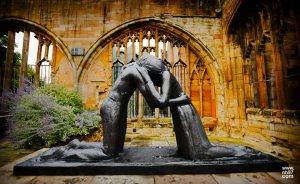 Over the last decade, reconciliation in the aftermath of violence has evolved from being a by-word for impunity, to being conceived of as a vital element in a society’s transition to sustainable peace. Despite the confidence that reconciliation is crucial to successful transition, there is, on the one hand, little consensus over what reconciliation means and how it is to be reached, and on the other, a growing sense that reconciliation has come to be defined by the liberal peacebuilding paradigm in which it was conceived, and as such offers only limited value to post-conflict/ authoritarian societies. It is clear, then, that there is a need to re-evaluate what reconciliation does, can, has and might mean as scholars continue to search for viable ways for introducing sustainable peace. In order to challenge what it is that is meant by the term ‘reconciliation’ and how this ‘goal’ is reached, the workshop brings together academics from a range of disciplines to explore hidden and forgotten moments of (non)reconciliation from a diverse range of historical and cultural contexts and from a variety of theoretical perspectives. Papers include explorations of reconciliation practices in Ancient Greece, the longue durée of (non)reconciliation in the aftermath of the English and American Civil Wars, the reverberations of the memory of violence with the Bolshevik revolution, the dynamic role of religion in reconciliatory moments, and the role of traditional reconciliation practices in East Africa.
Over the last decade, reconciliation in the aftermath of violence has evolved from being a by-word for impunity, to being conceived of as a vital element in a society’s transition to sustainable peace. Despite the confidence that reconciliation is crucial to successful transition, there is, on the one hand, little consensus over what reconciliation means and how it is to be reached, and on the other, a growing sense that reconciliation has come to be defined by the liberal peacebuilding paradigm in which it was conceived, and as such offers only limited value to post-conflict/ authoritarian societies. It is clear, then, that there is a need to re-evaluate what reconciliation does, can, has and might mean as scholars continue to search for viable ways for introducing sustainable peace. In order to challenge what it is that is meant by the term ‘reconciliation’ and how this ‘goal’ is reached, the workshop brings together academics from a range of disciplines to explore hidden and forgotten moments of (non)reconciliation from a diverse range of historical and cultural contexts and from a variety of theoretical perspectives. Papers include explorations of reconciliation practices in Ancient Greece, the longue durée of (non)reconciliation in the aftermath of the English and American Civil Wars, the reverberations of the memory of violence with the Bolshevik revolution, the dynamic role of religion in reconciliatory moments, and the role of traditional reconciliation practices in East Africa.
Whilst the workshop is principally for those presenting papers, there are a limited number of spaces left for those interested in attending. Please emailhenry.redwood@kcl.ac.uk for more information.
